|
Despite the fact that the History Channel and I don’t have the best of relationships, it seems that their publishing partners at the Atlantic Monthly Press didn’t get the message. The publisher just sent me an advance copy of the History-branded The Curse of Oak Island tie-in book by journalist Randall Sullivan, due out just in time for Christmas. I only received the book Tuesday night, so I haven’t had time to read much, but I have to say that the introduction and opening chapter left me baffled. I suppose this must be a book for super-fans of Curse, since my general but not particularly deep knowledge of the “mystery” of Oak Island was not enough to make sense of the barrage of names and dates, or the convoluted history thrust upon me with little authorial guidance.
48 Comments
Truth or Double Dare (TODD) 2018 | L.O.U.D. (Living Out Ur Dreams) Films | 62 minutes Every day, publicity agents send me pitches to review new movies, TV shows, web series, concept albums, and books. As a general rule of thumb, if they are asking me to review something, it’s probably bad. I only watch about one in ten of the movies that I get asked to review. I review maybe one in five of those at best because most are vaguely competent but clichéd riffs on familiar themes, destined to cycle through a third-tier streaming service and be forever forgotten. They aren’t even worth hating. But once in a while I find a movie so staggeringly awful that it takes even me by surprise. And I have watched every episode of Mystery Science Theater 3000.
Happy Halloween! I’m taking the day off to mark the occasion with my son, who is dressing up as his favorite animal, an owl, this year. In the spirit of the holiday, please enjoy a selection of seasonally appropriate content.
The Teenage Slasher Movie Book (2nd revised and expanded ed.) J. A. Kerswell | 224 pages | Companion | October 2018 | ISBN: 978-1620083079 | $24.99 Horror fans have sliced and diced the genre into innumerable subgenres—if you will forgive the terrible pun. It is now possible to be a fan exclusively of Korean zombie movies, or films about people trapped in overly complex torture devices, or even movies about creepy strangers posing menacingly outside of young adults’ windows. It is both an astonishing time to be alive, and also kind of uncomfortable to have Hollywood feeding so much of the same that the most obscure horrors are no longer isolated gems cherished for their own sake but are instead copied and pasted until the original no longer stands out. There is a certain degree of homogenization in horror, and the homages, copycats, and riders of coattails end up retroactively detracting from the true originals.
Tonight, Syfy launches the new season of Channel Zero, its low-budget knockoff of American Horror Story. Like other outsourced copies, the Canadian-produced series tends toward lower quality and a more workmanlike, no-frills approach to its product. I have been critical of the anthology series’ past efforts, all of which I have found to be aesthetically displeasing, occasionally wooden, and rather thinly sketched. However, I will offer praise for the remarkable renovation that the series has undertaken for its new six-episode edition, “The Dream Door,” which premieres this evening and will run a new episode each night until Halloween.
A couple of years ago, W. Scott Poole wrote a book about H. P. Lovecraft that I did not like, and a few years before that, he wrote a book about monsters in America that I also did not like (Part 1 and Part 2). Having read much of his work, it is clear that he and I have very different views on the origins and development of the horror genre. This week Poole releases a new book, Wasteland: The Great War and the Origins of Modern Horror, unread by me, about what he sees as the profound impact of World War I on the development of the horror genre. While there is no doubt that the war found its way into horror—as it did comedy, as Laurel and Hardy, the Marx Brothers, and many others attest—my visceral reaction to his claims in a recent Vice interview is that he has grossly overstated the case.
Shirley Jackson’s The Haunting of Hill House (1959) is one of the all-time classics of the horror genre, bringing the classic Gothic tale of a haunted mansion into the twentieth century and firmly locating the horror in the psychological reactions of the men and women who unwisely choose to enter its orbit. Jackson’s novel was doubly notable because it was a rare-for-its-time masterpiece by a female writer in a field that was, and largely remains, dominated by men. Its opening lines are famous: No live organism can continue for long to exist sanely under conditions of absolute reality; even larks and katydids are supposed, by some, to dream. Hill House, not sane, stood by itself against its hills, holding darkness within; it had stood so for eighty years and might stand for eighty more…and whatever walked there, walked alone. This week Scottish television personality and sometime Ancient Aliens talking head Ashley Cowie attempted to explore the origins of vampires for Ancient Origins. It did not go particularly well, not least because Cowie frames his discussion around Bram Stoker’s 1897 novel Dracula without, apparently, having read the book and without understanding much about its origins. Probably everything you need to know can be summed up in the fact that he traces vampires in popular entertainment to Stoker and then focuses exclusively on movie and TV vampires, despite the fact that Stoker drew on decades of Gothic vampire fiction (Le Fanu’s “Carmilla” and Polidori’s “The Vampyre” most prominently), and vampire entertainments go back in European folklore at least to the stories told for titillation and sensation about the great vampire outbreak of the late 1600s and early 1700s.
I wasn’t planning to write an original blog post today, but in the Daily Grail news feed I came across a bizarre claim in an article about the classic Australian movie Picnic at Hanging Rock (1975) that is worth discussing. The film, for those who haven’t seen either it or the recent Australian TV adaptation released in the U.S. by Amazon Prime, revolves around the mysterious disappearance of a number of school girls in the early 1900s while out on a school trip to a rock formation in the woods. Because of the spare, poetic, but plausible depiction of the events in the film, which focus on the guilt and sadness of the survivors, many people wrongly believe that the completely fictional story was based on a real-life event.
The Sky Is Falling: How Vampires, Zombies, Androids, and Superheroes Made America Great for Extremism Peter Biskind | 256 pages | New Press | Sept. 11, 2018 | ISBN 9781620974292 | $26.99 During the 2016 presidential campaign, Donald Trump’s son-in-law, Jared Kushner, commissioned a study to better target the kinds of voters Trump would need to reach to win the election. According to an interview Kushner later gave to Forbes magazine, he learned that Trump voters were most likely to be fans of AMC’s zombie drama The Walking Dead, a show about rugged individualists struggling to beat back hordes of rampaging zombies that constantly breach their border walls after the total collapse of the federal government. Consequently, the Trump team bought air time during the broadcast. It was neither the first nor the last time that The Walking Dead—a rural-themed show with the formal structure of midcentury cowboys-and-Indians movie—has been viewed as a conservative drama. As I wrote in my Knowing Fear a decade ago, horror is almost by definition structurally conservative since it revolves around breaches of the status quo.
|
AuthorI am an author and researcher focusing on pop culture, science, and history. Bylines: New Republic, Esquire, Slate, etc. There's more about me in the About Jason tab. Newsletters
Enter your email below to subscribe to my newsletter for updates on my latest projects, blog posts, and activities, and subscribe to Culture & Curiosities, my Substack newsletter.
Categories
All
Terms & ConditionsPlease read all applicable terms and conditions before posting a comment on this blog. Posting a comment constitutes your agreement to abide by the terms and conditions linked herein.
Archives
April 2024
|
- Home
- Blog
- Books
-
Articles
-
Newsletter
>
- Television Reviews >
- Book Reviews
- Galleries >
- Videos
-
Collection: Ancient Alien Fraud
>
- Chariots of the Gods at 50
- Secret History of Ancient Astronauts
- Of Atlantis and Aliens
- Aliens and Ancient Texts
- Profiles in Ancient Astronautics >
- Blunders in the Sky
- The Case of the False Quotes
- Alternative Authors' Quote Fraud
- David Childress & the Aliens
- Faking Ancient Art in Uzbekistan
- Intimations of Persecution
- Zecharia Sitchin's World
- Jesus' Alien Ancestors?
- Extraterrestrial Evolution?
- Collection: Skeptic Magazine >
- Collection: Ancient History >
- Collection: The Lovecraft Legacy >
- Collection: UFOs >
- Scholomance: The Devil's School
- Prehistory of Chupacabra
- The Templars, the Holy Grail, & Henry Sinclair
- Magicians of the Gods Review
- The Curse of the Pharaohs
- The Antediluvian Pyramid Myth
- Whitewashing American Prehistory
- James Dean's Cursed Porsche
-
Newsletter
>
-
The Library
-
Ancient Mysteries
>
-
Ancient Texts
>
- Mesopotamian Texts >
-
Egyptian Texts
>
- The Shipwrecked Sailor
- Dream Stela of Thutmose IV
- The Papyrus of Ani
- Classical Accounts of the Pyramids
- Inventory Stela
- Manetho
- Eratosthenes' King List
- The Story of Setna
- Leon of Pella
- Diodorus on Egyptian History
- On Isis and Osiris
- Famine Stela
- Old Egyptian Chronicle
- The Book of Sothis
- Horapollo
- Al-Maqrizi's King List
- Teshub and the Dragon
- Hermetica >
- Hesiod's Theogony
- Periplus of Hanno
- Ctesias' Indica
- Sanchuniathon
- Sima Qian
- Syncellus's Enoch Fragments
- The Book of Enoch
- Slavonic Enoch
- Sepher Yetzirah
- Tacitus' Germania
- De Dea Syria
- Aelian's Various Histories
- Julius Africanus' Chronography
- Eusebius' Chronicle
- Chinese Accounts of Rome
- Ancient Chinese Automaton
- The Orphic Argonautica
- Fragments of Panodorus
- Annianus on the Watchers
- The Watchers and Antediluvian Wisdom
-
Medieval Texts
>
- Medieval Legends of Ancient Egypt >
- The Hunt for Noah's Ark
- Isidore of Seville
- Book of Liang: Fusang
- Agobard on Magonia
- Book of Thousands
- Voyage of Saint Brendan
- Power of Art and of Nature
- Travels of Sir John Mandeville
- Yazidi Revelation and Black Book
- Al-Biruni on the Great Flood
- Voyage of the Zeno Brothers
- The Kensington Runestone (Hoax)
- Islamic Discovery of America
- The Aztec Creation Myth
-
Lost Civilizations
>
-
Atlantis
>
- Plato's Atlantis Dialogues >
- Fragments on Atlantis
- Panchaea: The Other Atlantis
- Eumalos on Atlantis (Hoax)
- Gómara on Atlantis
- Sardinia and Atlantis
- Santorini and Atlantis
- The Mound Builders and Atlantis
- Donnelly's Atlantis
- Atlantis in Morocco
- Atlantis and the Sea Peoples
- W. Scott-Elliot >
- The Lost Atlantis
- Atlantis in Africa
- How I Found Atlantis (Hoax)
- Termier on Atlantis
- The Critias and Minoan Crete
- Rebuttal to Termier
- Further Responses to Termier
- Flinders Petrie on Atlantis
- Amazing New Light (Hoax)
- Lost Cities >
- OOPARTs
- Oronteus Finaeus Antarctica Map
- Caucasians in Panama
- Jefferson's Excavation
- Fictitious Discoveries in America
- Against Diffusionism
- Tunnels Under Peru
- The Parahyba Inscription (Hoax)
- Mound Builders
- Gunung Padang
- Tales of Enchanted Islands
- The 1907 Ancient World Map Hoax
- The 1909 Grand Canyon Hoax
- The Interglacial Period
- Solving Oak Island
-
Atlantis
>
- Religious Conspiracies >
-
Giants in the Earth
>
-
Fossil Origins of Myths
>
- Fossil Teeth and Bones of Elephants
- Fossil Elephants
- Fossil Bones of Teutobochus
- Fossil Mammoths and Giants
- Giants' Bones Dug Out of the Earth
- Fossils and the Supernatural
- Fossils, Myth, and Pseudo-History
- Man During the Stone Age
- Fossil Bones and Giants
- Mastodon, Mammoth, and Man
- American Elephant Myths
- The Mammoth and the Flood
- Fossils and Myth
- Fossil Origin of the Cyclops
- History of Paleontology
- Fragments on Giants
- Manichaean Book of Giants
- Geoffrey on British Giants
- Alfonso X's Hermetic History of Giants
- Boccaccio and the Fossil 'Giant'
- Book of Howth
- Purchas His Pilgrimage
- Edmond Temple's 1827 Giant Investigation
- The Giants of Sardinia
- Giants and the Sons of God
- The Magnetism of Evil
- Tertiary Giants
- Smithsonian Giant Reports
- Early American Giants
- The Giant of Coahuila
- Jewish Encyclopedia on Giants
- Index of Giants
- Newspaper Accounts of Giants
- Lanier's A Book of Giants
-
Fossil Origins of Myths
>
-
Science and History
>
- Halley on Noah's Comet
- The Newport Tower
- Iron: The Stone from Heaven
- Ararat and the Ark
- Pyramid Facts and Fancies
- Argonauts before Homer
- The Deluge
- Crown Prince Rudolf on the Pyramids
- Old Mythology in New Apparel
- Blavatsky on Dinosaurs
- Teddy Roosevelt on Bigfoot
- Devil Worship in France
- Maspero's Review of Akhbar al-zaman
- The Holy Grail as Lucifer's Crown Jewel
- The Mutinous Sea
- The Rock Wall of Rockwall
- Fabulous Zoology
- The Origins of Talos
- Mexican Mythology
- Chinese Pyramids
- Maqrizi's Names of the Pharaohs
-
Extreme History
>
- Roman Empire Hoax
- American Antiquities
- American Cataclysms
- England, the Remnant of Judah
- Historical Chronology of the Mexicans
- Maspero on the Predynastic Sphinx
- Vestiges of the Mayas
- Ragnarok: The Age of Fire and Gravel
- Origins of the Egyptian People
- The Secret Doctrine >
- Phoenicians in America
- The Electric Ark
- Traces of European Influence
- Prince Henry Sinclair
- Pyramid Prophecies
- Templars of Ancient Mexico
- Chronology and the "Riddle of the Sphinx"
- The Faith of Ancient Egypt
- Remarkable Discoveries Within the Sphinx (Hoax)
- Spirit of the Hour in Archaeology
- Book of the Damned
- Great Pyramid As Noah's Ark
- Richard Shaver's Proofs
-
Ancient Texts
>
-
Alien Encounters
>
-
US Government Ancient Astronaut Files
>
- Fortean Society and Columbus
- Inquiry into Shaver and Palmer
- The Skyfort Document
- Whirling Wheels
- Denver Ancient Astronaut Lecture
- Soviet Search for Lemuria
- Visitors from Outer Space
- Unidentified Flying Objects (Abstract)
- "Flying Saucers"? They're a Myth
- UFO Hypothesis Survival Questions
- Air Force Academy UFO Textbook
- The Condon Report on Ancient Astronauts
- Atlantis Discovery Telegrams
- Ancient Astronaut Society Telegram
- Noah's Ark Cables
- The Von Daniken Letter
- CIA Psychic Probe of Ancient Mars
- Scott Wolter Lawsuit
- UFOs in Ancient China
- CIA Report on Noah's Ark
- CIA Noah's Ark Memos
- Congressional Ancient Aliens Testimony
- Ancient Astronaut and Nibiru Email
- Congressional Ancient Mars Hearing
- House UFO Hearing
- Ancient Extraterrestrials >
- A Message from Mars
- Saucer Mystery Solved?
- Orville Wright on UFOs
- Interdimensional Flying Saucers
- Flying Saucers Are Real
- Report on UFOs
-
US Government Ancient Astronaut Files
>
-
The Supernatural
>
- The Devils of Loudun
- Sublime and Beautiful
- Voltaire on Vampires
- Demonology and Witchcraft
- Thaumaturgia
- Bulgarian Vampires
- Religion and Evolution
- Transylvanian Superstitions
- Defining a Zombie
- Dread of the Supernatural
- Vampires
- Werewolves and Vampires and Ghouls
- Science and Fairy Stories
- The Cursed Car
-
Classic Fiction
>
- Lucian's True History
- Some Words with a Mummy
- The Coming Race
- King Solomon's Mines
- An Inhabitant of Carcosa
- The Xipéhuz
- Lot No. 249
- The Novel of the Black Seal
- The Island of Doctor Moreau
- Pharaoh's Curse
- Edison's Conquest of Mars
- The Lost Continent
- Count Magnus
- The Mysterious Stranger
- The Wendigo
- Sredni Vashtar
- The Lost World
- The Red One
- H. P. Lovecraft >
- The Skeptical Poltergeist
- The Corpse on the Grating
- The Second Satellite
- Queen of the Black Coast
- A Martian Odyssey
- Classic Genre Movies
-
Miscellaneous Documents
>
- The Balloon-Hoax
- A Problem in Greek Ethics
- The Migration of Symbols
- The Gospel of Intensity
- De Profundis
- The Life and Death of Crown Prince Rudolf
- The Bathtub Hoax
- Crown Prince Rudolf's Letters
- Position of Viking Women
- Employment of Homosexuals
- James Dean's Scrapbook
- James Dean's Love Letters
- The Amazing James Dean Hoax!
- James Dean, The Human Ashtray
- Free Classic Pseudohistory eBooks
-
Ancient Mysteries
>
- About Jason
- Search
© 2010-2024 Jason Colavito. All rights reserved.

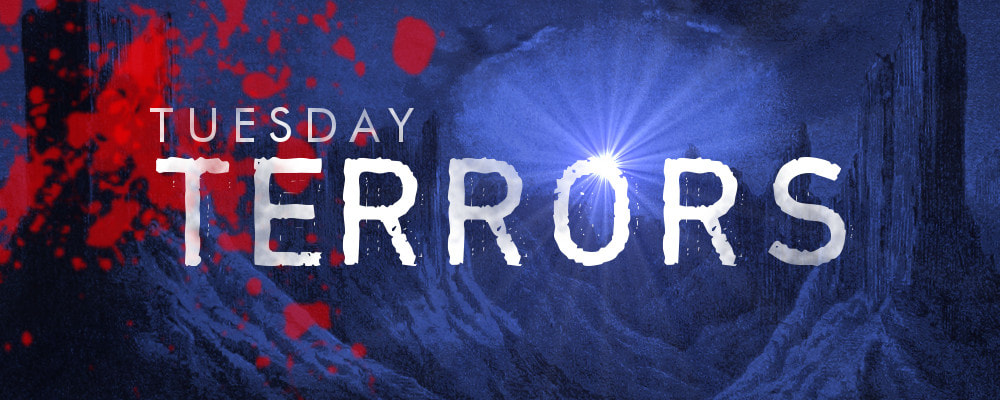

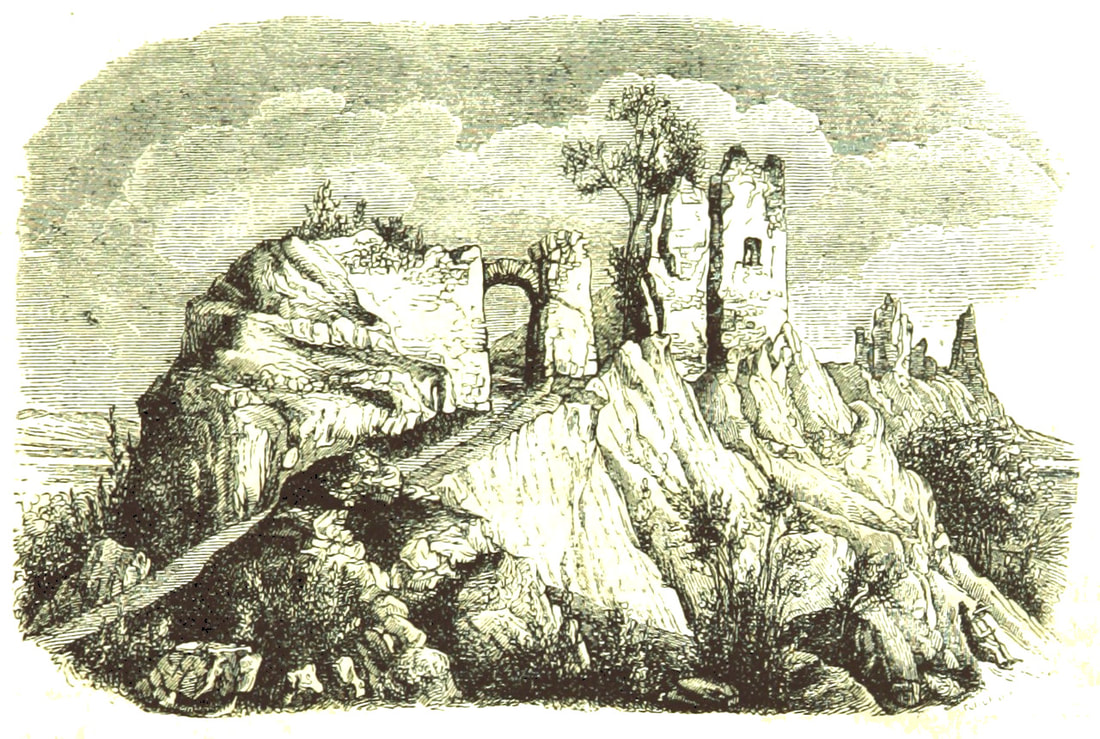
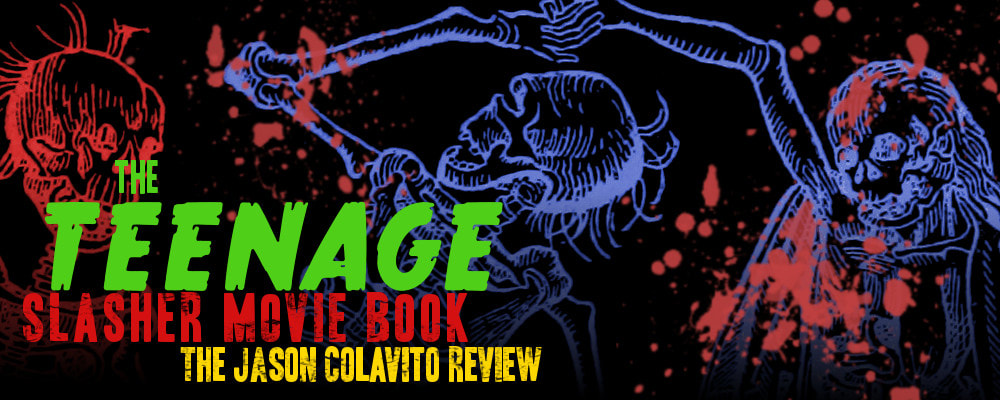

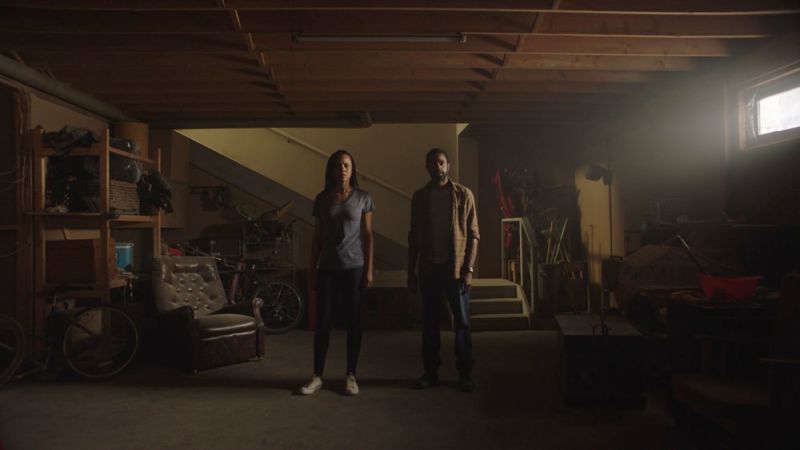
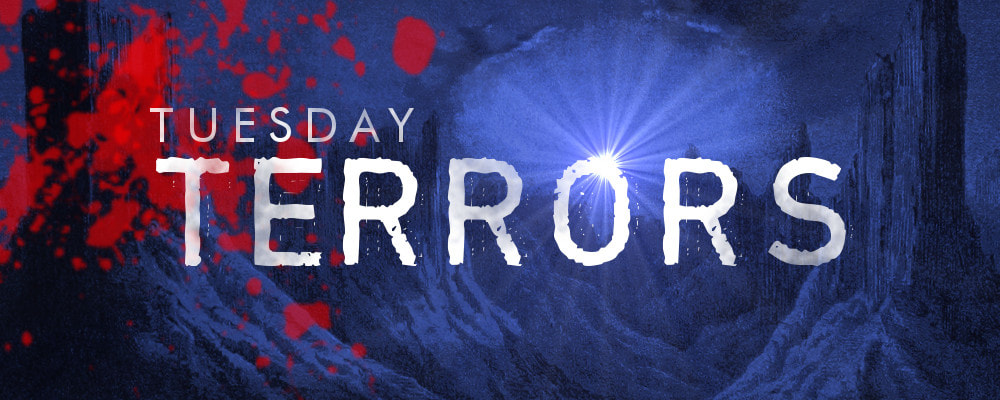
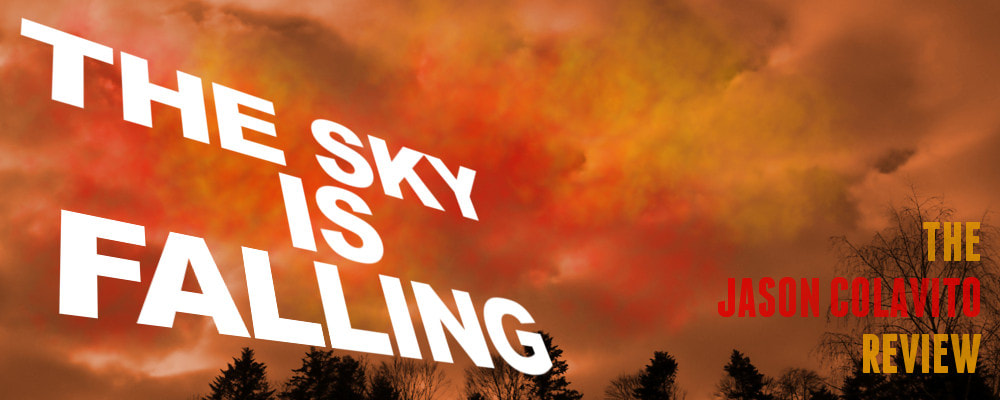

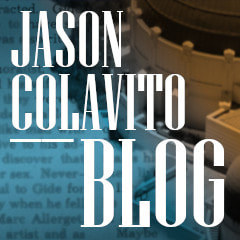


 RSS Feed
RSS Feed
